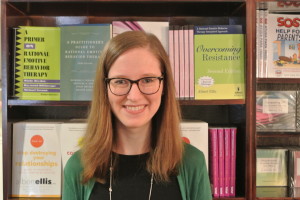By Glynnis McDonnell, M.A.
A quote often attributed to Benjamin Franklin states, “Nothing is certain except death and taxes.” Well, that is a tough pill to swallow for anyone who likes to plan. I love planners, color-coded spreadsheets, and anything else that will help me map out my future in pain-staking detail. I MUST plan everything out perfectly in order to ensure everything goes smoothly. Right?! For me, the first few years of my doctoral program really served to placate my demand for planning. When you sign up for a doctoral program in clinical psychology, you have a pretty good idea of what the next 4-5 years will look like, provided nothing goes horribly awry. However, half way through year 4, things start to take a turn toward uncertainty.
In order to complete a doctorate in clinical psychology, students need to complete one year of full-time advanced clinical training at a site outside their university. The decision of where each student places is made by a computer algorithm. Students have some degree of control over the process. We decide which sites to apply to, and we submit a ranked listed of site preferences after completing interviews…but after that, the decision is completely out of our hands. Yikes! Throw in the fact that we’ll be applying for post doctoral positions the following year, and our first positions as licensed psychologists two years after that, there is a ton of uncertainty that no amount of planning can counteract. I can’t stand not being able to plan how the next few years will look! Ugh!
Did anyone identify any irrational beliefs I’m holding about this process? I did, so I’m going to spend the next few lines disputing these beliefs and developing more rational beliefs. First, there was the demand that I MUST plan everything out. Is this belief helping or hurting me? (Answer: It’s hurting me. It is causing anxiety when my demand for planning is inconsistent with the reality that I cannot plan the next few years right now.) Where is it written that I must be able to plan every detail of my life? (Answer: Nowhere.) Have there been aspects of my life that I haven’t been able to plan before? (Answer: Yes, there have. So why should this be any different?) Given these facts, it seems that my demand for planning doesn’t hold up. A more rational way of viewing this situation would be to tell myself, “I would prefer to be able to plan the next few years of my career right now, but there is no reason why I MUST be able to plan in advance and I can accept that planning the next few years is not an option right now.”
My second irrational belief was the thought that I can’t stand not being able to plan the next few years. Where is the evidence that I can’t stand the uncertainty? Have I spontaneously combusted during this period of uncertainty? (Answer: Nope.) Have I survived every other time that uncertainty has crept into my life? (Answer: I’m still here.) Is my belief that I can’t stand this situation helping or hurting me? (Answer: It’s hurting me because it keeps me focused on the unpleasantness of the uncertainty when I could be focusing on other things.) So, do I have any evidence that I can’t stand the uncertainty? I guess not. A more rational way to think about this situation is, “I don’t like that I am facing some uncertainty right now, but I know I can tolerate it.”
In sum- I’m working on changing my demand to a preference and my belief about frustration intolerance to frustration tolerance. When I remind myself of these ideas, I still feel some concern about where I will end up, but it is a much more manageable concern than when I cling to my irrational beliefs about the need for certainty.

